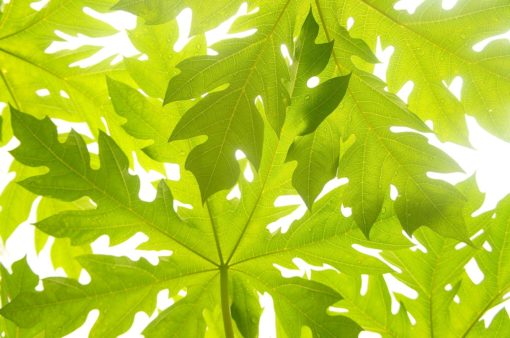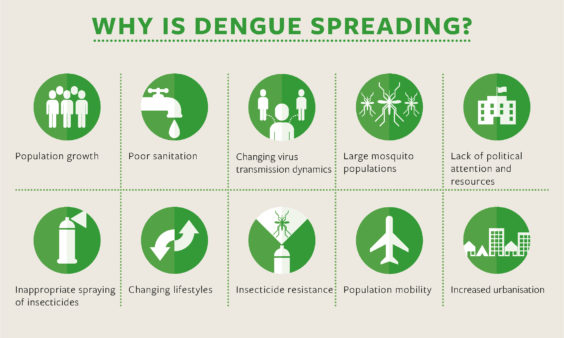- by Alison
Dengue home remedies: why they don’t work

With no known cure for dengue fever, many people turn to dengue home remedies in the hope these will cure them more quickly. But traditional dengue home remedies aren’t the answer. Dr. Professor Pratit Samdani, Honorary Associate Professor of Medicine and Head of the Medicine unit at G T Hospital and Sir J J Group of Hospitals in Mumbai, explains why people should be increasing their fluid intake and looking for signs of bleeding rather than drinking papaya juice and basil tea or eating kiwi and dragon fruit.
Dengue home remedies have been a traditional practice in many countries for hundreds of years; whenever someone contracts the disease, friends and family share tales of how fruits and drinks can speed recovery.
“With incidence of dengue high and no specific dengue treatment available, people turn to home remedies to aid their recovery,” says Professor Samdani. “Here in India, almost every dengue patient comes to me with a list of home remedies.”
From papaya leaves to wheatgrass juice
In India, drinking the juice from the papaya leaf is one of the most common dengue home remedies. People take fresh papaya leaves straight from the tree, soak them in water and grind them before drinking two or three spoons four or five times a day.
“I hear it’s got a bitter taste,” says Professor Samdani. “Nevertheless, most people take it. Every person admitted to hospital with dengue has a small bottle with green color in it. It will be papaya leaf extract or papaya leaf juice.”
Read more: Urbanization and globalization: spreading dengue around the globe
Other common dengue home remedies include eating dragon fruit and other fruits such as kiwi fruit. People believe these remedies will increase their platelet count, which is often the biggest fear for patients with dengue. “An increase in hemoglobin has a worse outcome than a drop in the platelet count,” says Professor Samdani, “but many patients are more concerned with their platelet count.”
Some believe basil leaf tea and coriander leaf tea will have an anti-viral effect and improve circulation, which will in turn help relieve them of the dengue virus; others eat pomegranates, drink wheatgrass juice or consume foods rich in vitamin C.
Home remedies don’t help
But dengue is a self-limiting disease. The majority of patients simply recover with time. When it comes to dengue protection, home remedies don’t benefit them in any way.
“Home remedies for dengue certainly do nothing to speed or improve recovery,” says Professor Samdani. “They don’t help patients in terms of anti-viral activity, improving platelet count, decreasing hemoglobin, offering symptomatic relief or early recuperation.”
Yet patients are stuck because doctors have nothing to offer them besides symptomatic treatment. Most of them know that there is no treatment aside from the drugs that provide symptomatic treatment. Irrespective of how much doctors like Professor Samdani educate them, many patients continue to use home remedies for dengue. They feel that these will help them.
“I tell them home remedies do not help with getting better faster and back to work quicker,” says Professor Samdani. “But if you do want you can continue having them – just make sure they’re well-made and hygienic.”

Image courtesy of Malaria Consortium
Drink more fluids
So, what’s the problem? With the fruit and leaves being completely natural, home remedies for dengue don’t put people at risk for any serious side effects. If at all, papaya leaves may cause some nausea and vomiting because they are very, very sour.
There are, however, risks that come with dengue home remedies – the main risk being the immense confidence they give the patient and their families. Patients feel they are getting the complete holistic treatment they need; that they are preventing the drop in platelet count that they feel is the main risk from dengue.
“We need to raise awareness that it’s not the drop in platelet count that’s more dangerous; it’s the rise in hematocrit and hemoglobin that can lead to more complications,” says Professor Samdani. “It’s important they drink more liquid and look for signs of bleeding rather than concentrating on these small home remedies for dengue.”
Dengue home remedies are available, but they aren’t a cure for the disease. They don’t help you recover more quickly, and they do nothing to stop hematocrit and hemoglobin levels from rising.
Instead, if you are unfortunate enough to catch dengue, take these three simple steps: drink more, look for signs of bleeding and heed your doctor’s advice.
—
Did someone you know get dengue? Click below to report the incidence to Dengue Track.

